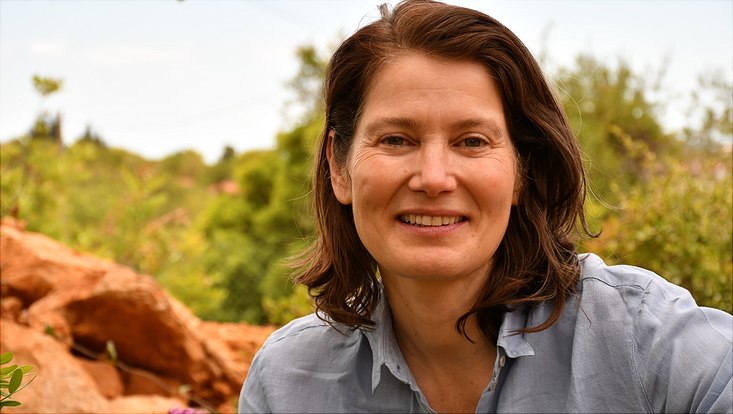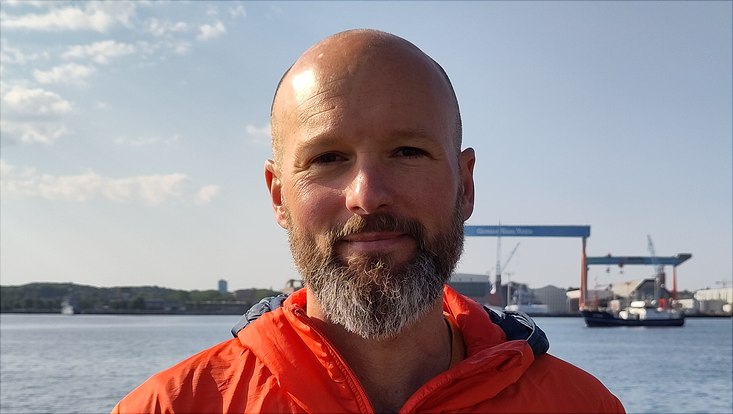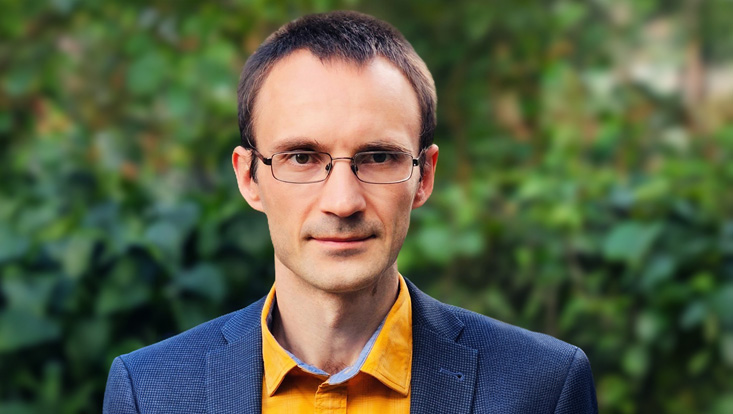Welcome aboard!“We aim to predict species’ responses to global climate change.”Prof. Dr. Marie Elisabeth Herberstein strengthens Biology and LIB.
19 June 2024, by Herberstein/Red.

Photo: Private
Every year, Universität Hamburg welcomes numerous new researchers. This series introduces them and their areas of research. This time: Biologist Prof. Dr. Marie Elisabeth Herberstein.
Prof. Dr. Marie Elisabeth Herberstein joined Universität Hamburg in Summer Semester 2024 from Macquarie University in Sydney, Australia, as a professor of systematic zoology at the Faculty of Mathematics, Informatics and Natural Sciences in a joint academic search procedure with the Leibniz Institute for the Analysis of Biodiversity Change (LIB).
My research area in 3 sentences:
I am a behavioral ecologist and work mainly with spiders, but also with insects. I am interested in all aspects of their behavior—from mating systems to deception and feeding strategies.
This is how I explain my research to my family:
It’s all about spiders. My family keeps sending me pictures of spiders they have come across and request information about them, especially whether they are deadly. As my family lives in Australia, that may well be the case. However, in most cases they are not.
In Hamburg, the city, and the University, I am looking forward to:
Making the scientific collections in the new natural history museum even more accessible for researchers. Research collections like Hamburg’s comprise millions of objects, thus providing an immeasurable wealth of biodiversity information. They also reveal the various phenotypes, which helps establish how individuals of a species may look very different. This information can help us understand the human impact on spiders and insects, for example.
In Hamburg, I am looking forward to being able to bike everywhere, to cafés and bars, farmers and flea markets. I had no idea that I would be able to do stand-up paddleboarding right on the Außenalster.
These are my plans at Universität Hamburg:
I aim to build strong cooperations with my colleagues in order to jointly use large species trait databases and museum collections to predict how species may respond to global climate change. Our work is an essential part of informing the public about climate change threats and improving environmental protection measures.
This is why students should attend my courses:
I show students what makes animal behavior and behavioral ecology fascinating and how we can try to understand them by using new theoretical insights and high-tech equipment.
Reaching out to the world: I work with the following international and federal institutions and universities:
I nurture and maintain my research network in Australia at Macquarie University and beyond. Also, I am happy about thriving collaborations with colleagues in Finnland, the UK, and the USA to investigate warning signals butterflies send.
My research is important to society because:
My research about exceptional spider and insect behavior not only helps pique the public’s interest—hopefully resulting in environmental protection or citizen science projects; work on pheno-type changes due to human-induced climate change can also have a direct effect on nature protection measures.
Find a detailed interview with Prof. Dr. Marie Herberstein on her research and her plans in Hamburg on the LIB webpages.


